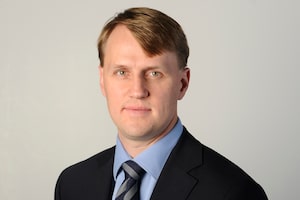It's been nearly 15 years since Heinz Schimmelbusch has garnered this much attention.
A onetime wunderkind of the metals industry, he became mired in scandal in 1993 when at the age of 49, he was fired as the chief executive officer of German conglomerate Metallgesellschaft AG amid more than $1-billion in oil futures trading losses that almost bankrupted the company.
Now the Austrian-born executive is back in the spotlight as the head of Timminco Ltd., the once-sleepy Toronto company whose shares have skyrocketed from pennies to more than $29 on claims it has discovered a "breakthrough" process to produce solar-grade silicon at costs far lower than competitors.
"I think we have a very positive future and we hope that every quarter when we do quarterly reports and every interim announcement, we will contribute to convincing you that you have a great new company here on the stock exchange," Mr. Schimmelbusch told reporters ahead of Timminco's annual general meeting in Toronto yesterday.
For Mr. Schimmelbusch, it was the first public appearance since Timminco has come under fire from critics who have questioned the viability of the company's solar-grade silicon production process.
To some, Timminco's sudden turnaround, from a cash-strapped producer of industrial-grade silicon to a company valued at more than $3-billion and poised to hit the jackpot from the red-hot solar sector, seems too good to be true. It has been targeted by short sellers and skeptics, led by Manuel Asensio, a New York-based fund manager who has publicly criticized the company on his website Asensio.com. Mr. Asensio calls Timminco's claims that it has discovered the holy grail of the solar silicon sector "preposterous."
Timminco says that by applying well-known metallurgical techniques to silicon, it is able to remove impurities and produce material with purity levels high enough to make solar cells.
"It should be obvious that Timminco's claims - using standard oxy-fuel burners and agitation equipment to solve a problem that has been analyzed and investigated by leading academic and industrial metallurgists for more than two decades - are not justified by the information that has so far been provided to the investing public," Mr. Asensio said yesterday.
Timminco officials dismiss that charge. René Boisvert, the head of Timminco's silicon division and the architect of the company's process, said the techniques Timminco is using to remove impurities "have been known for many years."
Timminco, however, is the first to find a way to apply the processes on a large scale, he said.
At a press conference that began as a wooden and stiff recital of prepared remarks, Mr. Schimmelbusch's mood visibly brightened once he was asked why there has been so much skepticism about Timminco.
"When you go up 7,000 per cent in the share price, what else is a short guy but attracted to you? I'm not a short guy. I'm mostly long. It is an old, very wise thing, that in commodity markets you shouldn't be short. It's dangerous," he said.
Timminco's share price has, so far, defied the skeptics. Although it briefly fell below $15 in April, it has since rebounded to fresh highs. Mr. Schimmelbusch said Timminco has launched legal action against its critics, but would not provide details.
"That strategy with the short is of dubious quality," he said.
Later at the company's annual meeting, attended by roughly 100 people including Eric Sprott, head of Sprott Assett Management - Timminco's second-largest shareholder - Mr. Schimmelbusch threatened further legal action against anyone making "idiotic" or "bizarre" statements about the company.
"If somebody oversteps a certain line, if he's over the line, it's going straight to the courts," he said.
Timminco has won supply contracts with solar cell makers, including the world's largest, Q-Cells AG. Timminco's silicon facility in Bécancour, Que., is ramping up production from 124 tonnes of solar silicon in the first quarter to roughly 900 tonnes a quarter by the end of the year.
In 2009, it will spend $90-million to expand capacity to 14,400 tonnes a year from 3,600.
Timminco's capital costs are far less than those of competitors in the same business. Norway's Elkem SA, for example, is spending more than $700-million to construct a solar silicon upgrading plant with less capacity than Timminco's plant.
Mr. Schimmelbusch said Timminco could soon be the world's largest producer of upgraded metallurgical silicon for solar cells. As the "challenging and stressful" production ramp-up progresses, he believes the questions surrounding the company will begin to fade away.
"We have here a very significant innovation which has the potential of making a significant mark on the solar industry," he said.
TIMMINCO (TIM)
Close: $29.18, up 47¢
 Derek DeCloet
Derek DeCloet